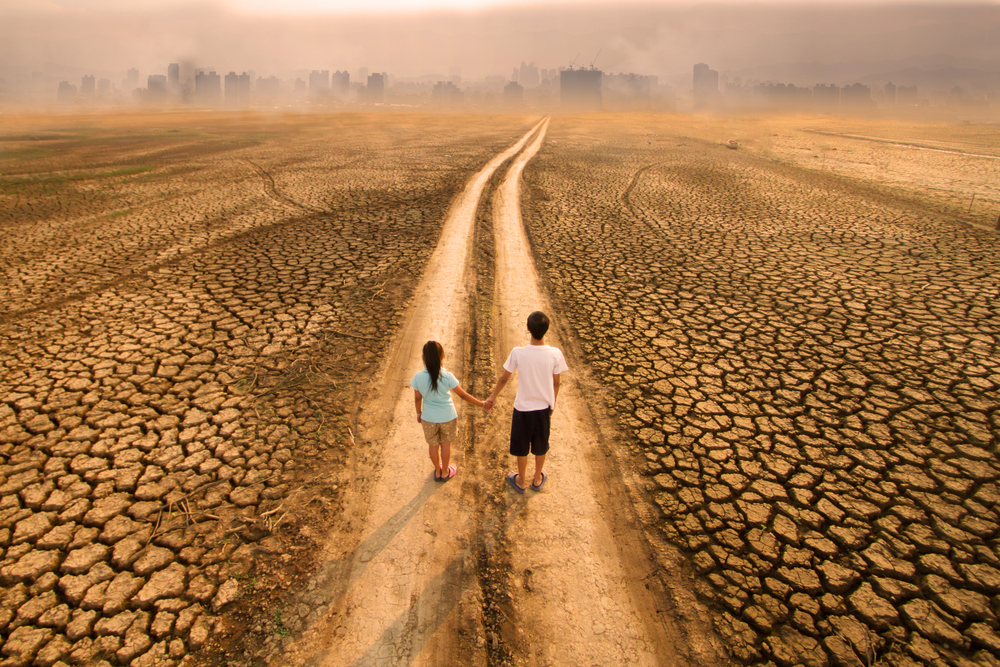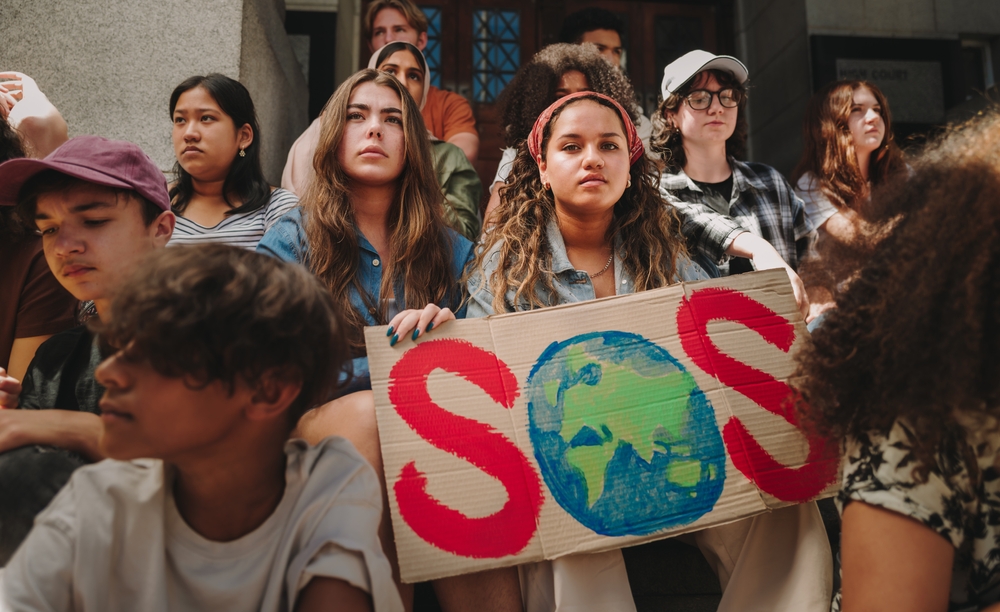


Young people today are growing up in a world filled with uncertainty. Climate change is no longer a distant threat—it’s a reality shaping their present and future. They see rising temperatures, extreme weather, and environmental destruction happening in real-time. Every day, they are bombarded with news about wildfires, floods, and species extinction. Social media amplifies these concerns, making it impossible to ignore the crisis.
For many, the reality of global warming feels overwhelming. The constant fear of what’s coming next can turn into sadness, hopelessness, or despair. And these emotions affect daily life, relationships, and mental health. Some people experience panic attacks. Others struggle with motivation, feeling like their efforts won’t make a difference. And for many, the weight of climate anxiety pushes them toward unhealthy coping mechanisms—like alcohol or illegal drugs.
Substance use disorders are on the rise, and public health experts are starting to see a link. When young people feel powerless about the future, they may look for anything that offers relief. But the more they rely on substances to escape, the harder it becomes to face reality without them.
Climate anxiety is the chronic fear, worry, or distress about climate change and its effects on the planet and future generations. It’s a growing mental health concern, especially among young adults who feel the weight of environmental destruction, extreme weather events, and political inaction.

Young adults experiencing climate anxiety often struggle with:
Eco-grief, or ecological grief, is the deep sadness and mourning people feel when they witness or anticipate environmental destruction. Unlike climate anxiety, which is rooted in fear of the future, eco-grief is often tied to a current loss—whether it’s the extinction of species, the destruction of forests, or the disappearance of places that once felt like home.
Alcohol is one of the most commonly used substances for stress relief. Many young adults drink to cope with climate-related anxiety, even if they have never had issues with substance use before. What starts as an occasional drink to relax can quickly turn into a cycle. The more alcohol is used as a coping mechanism, the harder it becomes to manage emotions without it. This increases the risk of alcohol abuse and dependency, making it even more difficult to address the underlying anxiety.
Some young adults turn to illegal drugs as a way to deal with their emotions. Marijuana, psychedelics, and opioids are often used to either escape reality or explore feelings related to climate change. Psychedelics, in particular, have gained popularity among those looking for deeper emotional insights. However, self-medicating is risky. It can lead to addiction, worsen mental health problems, and create long-term consequences that are difficult to reverse.

Most young adults abuse drugs to:
Climate anxiety is different from other types of stress because it doesn’t have a clear resolution. Unlike personal losses, where grief eventually settles, climate change is an ongoing crisis. The uncertainty of whether things will improve or worsen can feel overwhelming. For some young adults, alcohol or drugs offer a temporary way to escape the relentless worry about the planet’s future.
Substances like alcohol and drugs can dull intense emotions. After drinking or using certain substances, fear and anxiety may seem distant, at least for a while. This temporary relief makes it tempting to keep using them to cope. But over time, this pattern can turn into dependence. Instead of addressing climate anxiety in healthy ways, young adults may start relying on substances to manage stress, leading to substance use disorders.
Some young adults see substance use as an act of defiance. If they believe that governments and corporations are failing to protect the planet, they might wonder, “Why should I care about my health?” This mindset can lead to risky behaviors, including excessive drinking or experimenting with illegal drugs. While it may feel like taking control at the moment, this kind of self-destructive response can lead to long-term mental health struggles and addiction.
Social media raises awareness about environmental issues and fuels climate anxiety. Platforms like Twitter, Instagram, and TikTok constantly expose young adults to:
If you struggle with climate anxiety, you don’t have to turn to substances. Here are healthier coping strategies:
Talk to friends, family, or a therapist who understands your concerns. Join support groups focused on mental health and environmental action.
Feeling powerless? Channel your energy into positive change:

Social media fuels eco-anxiety. Limit your exposure to negative news and follow accounts that promote climate solutions instead of just problems.
Calm your mind with:
If climate anxiety is leading to substance use, professional help is available. Many mental health professionals specialize in eco-anxiety and can provide personalized coping skills.
Climate anxiety is real, and it affects people around the world. It is okay to feel worried about global warming and the future. But you don’t have to face it alone, and you don’t need substances to cope.
Instead, focus on healthy coping skills, support groups, and positive action. You are part of a generation that cares deeply about the planet; your voice and actions matter. But it's essential to take care of your mental health so you can stay strong in the fight for a better future.
Drug rehabilitation facilities like More Than Rehab now offer therapies specifically designed to address climate anxiety and eco-grief. These programs recognize the connection between environmental distress and substance use, providing support for both addiction and mental health struggles.
If climate anxiety is affecting your well-being, reach out to MTR today. Help is available, and recovery starts with the proper support.


